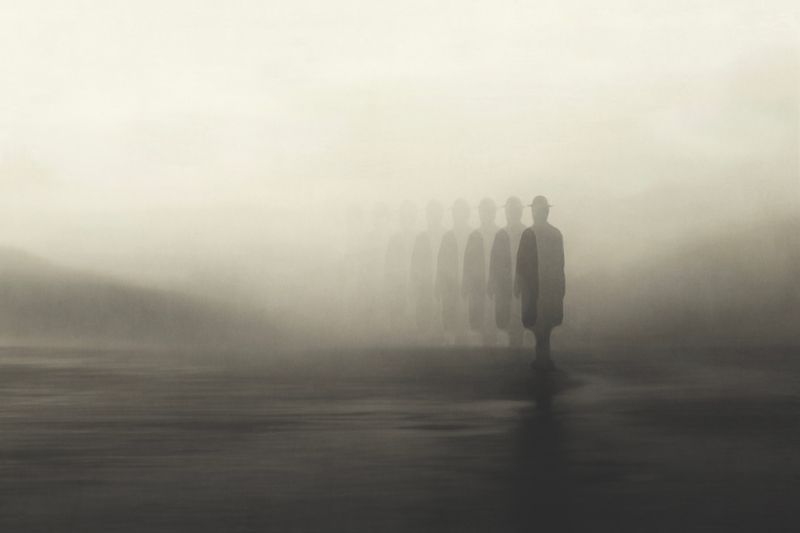A curse on him who tampers with the rights of the stranger, the orphan, and the widow. And all the people shall say, ‘Amen!’ (Deuteronomy 27:19)
This verse about the importance of doing justice to the stranger, the fatherless, and the widow (generally in that order) is one of the most widely repeated injunctions of the Torah, also being cited in Deut. 16:11, 14; 24:17-21; 26:12-13. It is repeated by the prophets, like Jeremiah 7:6 and 22:3, Ezekiel 22:7, and Zachariah 7:10 in their tirades against failures in its implementation. Even if not explicitly cited, its principle indirectly resurfaces in the recent judgement of the High Court of Australia against the indefinite detention of refugees and asylum seekers without citizenship outside this country.

The injunction to protect those who are without protection is perhaps one of the greatest gifts of Jewish tradition to its daughter religions, Christianity and Islam. Its principles also shape more recent statements, like the Universal Declaration of Human Rights. Promulgated on 10 December 1948, it was formulated in response to the Holocaust, itself based on contempt for those core principles of the Torah as well as for the Jewish people as a whole.
In May 1948 there took place an event, known in Palestine as the Nakba or ‘the Catastrophe’. It involved the destruction of over four hundred villages in Palestine, the killing of many thousands of inhabitants, and the displacement of over 750,000 Palestinians from their land. In 2006, the Israeli historian, Ilan Pappe, referred to these events as ‘The ethnic cleansing of Palestine’. They generated the present cycle of violence in the Gaza Strip, triggered in part by a political shift in Israel towards more intense nationalism, supported by religious extremists and an intensely violent reaction from the militant wing of Hamas.
Yet from the eyes of history, this cycle of violence, sharpened by each side claiming that it had suffered the greater injustice, is itself the product of a much older cycle. This can be traced back to pogroms against Jews in the later medieval and modern periods. These in turn led to a desire to establish the State of Israel in 1948, which, along with the Nakba, was an event with consequences that have endured for seventy-five years. Inevitably, contemporary historians will debate the rights and wrongs, as well as the pragmatics of international diplomacy that led to the current situation.
At a time of increased polarisation in society, nurtured by political demagogues and social media, it is vitally important to look back to those core principles of delivering justice for those marginalised in our society, including the Indigenous peoples of every land. The expulsion of Palestinians from the land claimed in 1948 by the Israeli State may have been perceived by some Jews and Christians as the fulfilment of a biblical vision of the promised land. Yet if there is any message that comes from the writings of the prophets, it is that there was always complaint that the people of Israel were not living up to the obligations placed on them by their constitution, formulated in terms of a covenant between God and the people.
The Torah recognizes the need in a patriarchal society to protect the stranger, the fatherless and the widow. In the early centuries of the Christian period, preachers continued the prophetic mission of insisting that the faithful take over these responsibilities, even without taking on the full panoply of regulations imposed by the Torah. In the Roman Empire, however, it was difficult to do much for the marginalised.
'At a time of increased polarisation in society, nurtured by political demagogues and social media, it is vitally important to look back to those core principles of delivering justice for those marginalised in our society, including the Indigenous peoples of every land.'
The injunction to look after the stranger, the fatherless, and the widow received new vitality in seventh-century Ireland within a short treatise, On the Twelve Abuses of the Age. This text exercised enormous influence across the medieval centuries through being circulated as by either Augustine or Cyprian. It summarizes what its author saw as the most outrageous abuses in society. His list began with a wise man without good works, but covered various categories, including an unjust king and a negligent bishop, but culminating with the ultimate abuse, a people without law.
This treatise, was originally within a society in which a king was more like a tribal chief than an all-powerful centralised ruler. Yet it gained wide influence because of its articulation of core ethical principles, rooted in scripture. It was written without awareness of the Jewish communities which would subsequently develop within both Christian and Islamic urban centres. Not without debate, Christian thinkers would formulate other ways of identifying abuses and principles of justice, drawing on both Cicero and Aristotle. Islam developed its own way of thinking about how to establish justice for the marginalized in society, as expounded in the Quran.
In our own, multi-religious society we must all recognise the need to implement justice for those the Bible calls the stranger, the fatherless, and the widow – in other words, minorities of various kinds, indeed all the vulnerable in society. Violence does not work. Justice must prevail.
Constant J. Mews, former Director of the Centre for Religious Studies at Monash University, is Emeritus Professor in its School of Philosophical, Historical and International Studies. He and his colleague, Kathleen B. Neal, have co-edited Addressing Injustice in the Medieval Body Politic (University of Amsterdam Press, 2023) Addressing Injustice in the Medieval Body Politic (degruyter.com), which includes a translation of On the Twelve Abuses of the Age, discussed in this article.
Main image: (Frances Coch / Getty images)